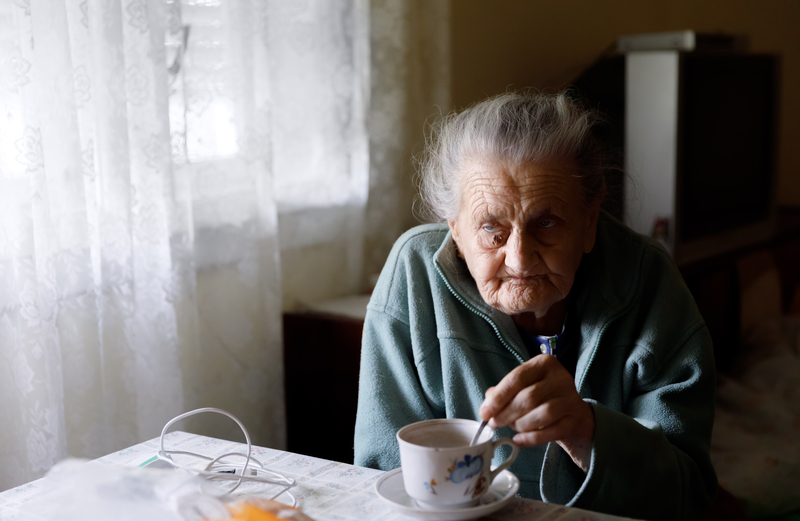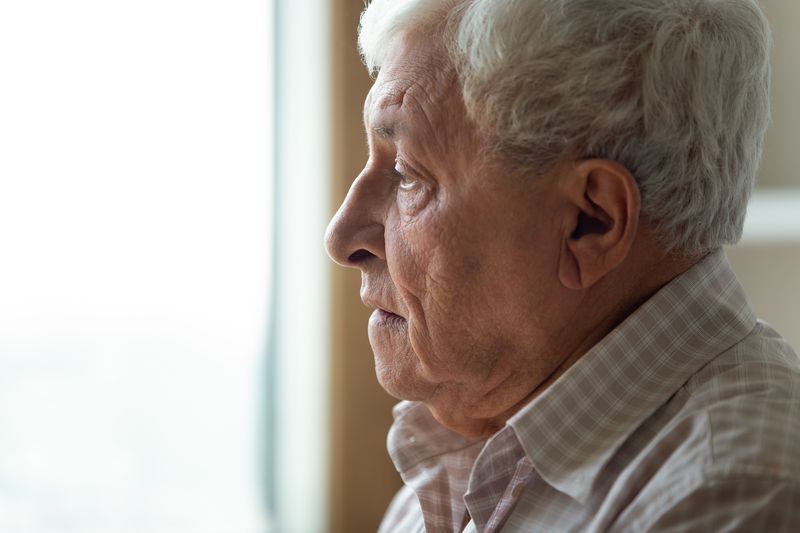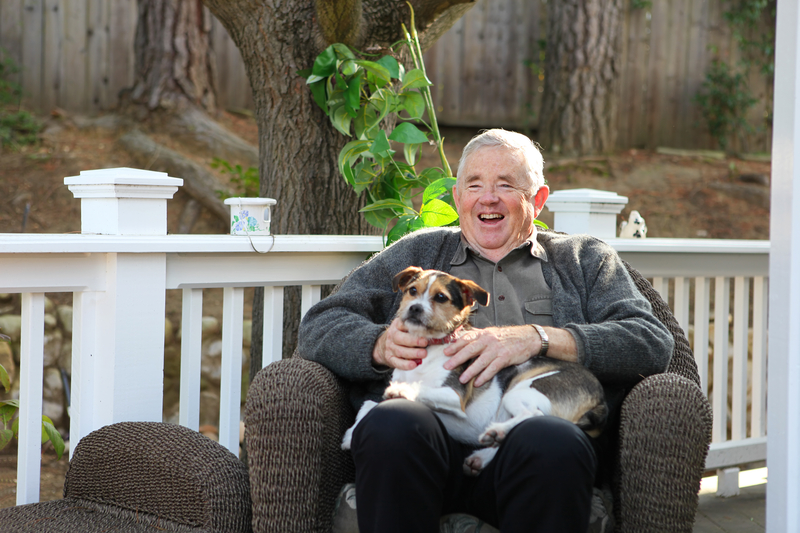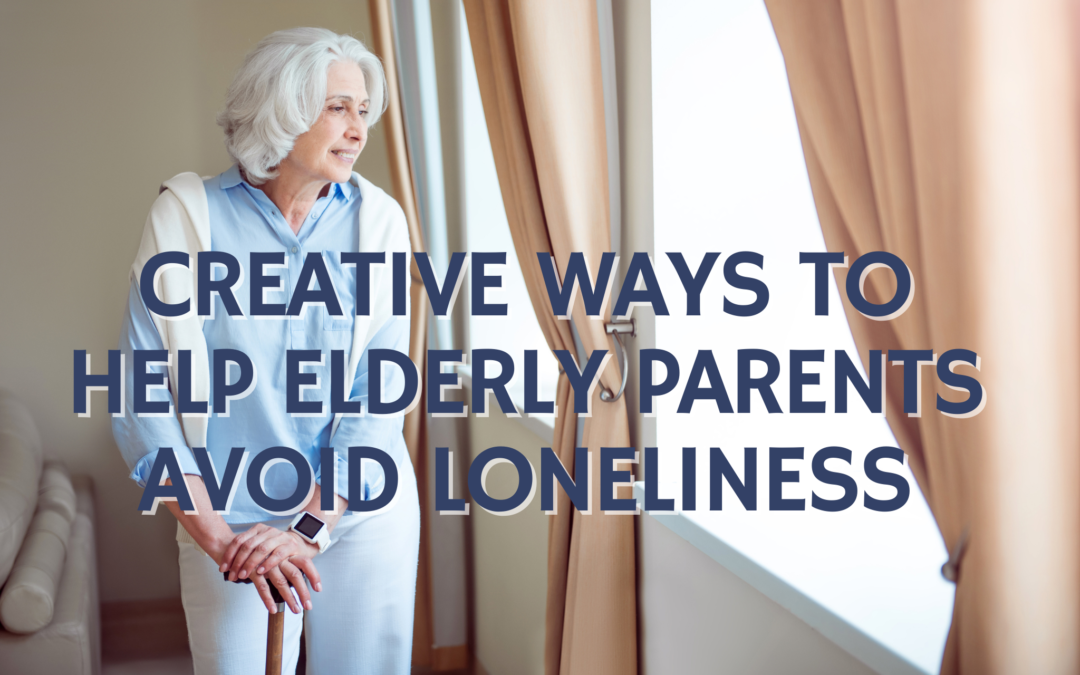Learning Ways to Help Elderly Parents Avoid Loneliness was quite important to my family. Before my Dad moved in with our family, I would visit him several days a week in his home. It wasn’t always easy to manage but I knew it was important. When I was due to arrive, he would be watching out the window for my car to drive in. It was an endearing welcome knowing that our time together was so important to him! And when he moved into our home, we learned ways to continue helping him avoid loneliness.
Contents
Creative Ways to Help Elderly Parents Avoid Loneliness
Loneliness is one of the major concerns of the elderly population. A report by the National Academies of Sciences, Engineering, and Medicine (NASEM) shows that one-third of adults aged 45 and older feel lonely. Statistics show that, nearly one-fourth of adults aged 65 and older are socially isolated. In this article, I will list down ways to help elderly parents avoid loneliness to have a fruitful and enjoyable life. However, sometimes the only thing needed to help your elderly parent avoid loneliness is being with them.

What is Loneliness?
According to a paper by Perlman and Peplau, loneliness is a subjective, unwelcome feeling of lack or loss of companionship, which happens when there is a mismatch between the quantity and quality of the social relationships we have with those that we want.
There are different sources of loneliness, and the four general kinds of loneliness are: chronic, social, emotional, and situational.
Chronic:
Chronic loneliness is a constant feeling of social isolation occurring for an extended period. The effects of chronic loneliness are low self-esteem and, in worse cases, insomnia.
Social:
When a person suffers from social loneliness, he might see a decrease in his social encounters. The reason for having social loneliness varies, but the more common causes are depression, an abrupt change in lifestyle, personal preference, or anxiety.
Emotional:
Emotional loneliness is being unable to connect emotionally with others or feeling a certain disconnect with other people around you. Unlike social loneliness, emotionally lonely people might have people around them. The problem is they are emotionally unable to form a more profound and intimate connection with them.

Importance of knowing the different kinds of loneliness
Understanding the sources will make it easier to help your elderly parent avoid loneliness because the first step in solving any problem is knowing the cause.
Effects of Loneliness:
The adverse effects of loneliness manifest themselves in various degrees. Concerning the physical effects of loneliness, research shows that loneliness can cause a higher risk of getting heart disease, diabetes, and Alzheimer’s. As to the emotional impact of loneliness, persons suffering from loneliness are more prone to depression and suicidal thoughts.
It is vital to remember that knowing the signs of loneliness at the onset will make it easier to see the solution.
Ways to help elderly parents avoid loneliness:
Knowing the type of loneliness your elderly parent is suffering from will help you understand what kind of help you can give them.
Below are some ways to help elderly parents avoid loneliness that you can use to help your loved ones.
1. Take them out
Sometimes all a person needs is to have their special someone be with them. Take your parent out to dinner; it need not be fancy, of course. Just chat about life and update yourself on their lives. It might be easy to get caught up in our lives when we get older and forget to check up on our loved ones. Taking your parent out and spending more time with them is one sure way to help your elderly parent avoid loneliness.
2. Encourage your parents to volunteer
One sure way to ease up loneliness in an individual is by encouraging them to join local volunteer groups. Being able to help others can help your parents become more involved in the community and help them create stronger connections. Also, by volunteering, your parents will become better members of society that can help them overcome their loneliness by getting that sense of accomplishment in their lives.
Not Able?
Of course, many of our elderly parents are unable to volunteer due to health or physical restrictions. For those, consider finding volunteers to visit with your parents. Unless you know the person very well, you probably want to stay with them during the visit, but just having a different person visit often helps relieve lonliness.
3. Get your parent a pet
Depending on the level of loneliness your parent feels, getting a pet will help your elderly parent avoid loneliness by giving them a companion. However, consider that if your parent cannot take care of themselves, getting them a pet will be unfair to the animal and your parent. One way to do this is by asking your parent if they are interested in getting a pet. By doing this, you do not surprise them with new events, and you are helping them get acclimated to the idea of having a lifelong companion.
My Dad often told us that his dog Mickey was his best friend. And indeed, he was. Mickey might not have been the perfect dog in every way, but he was always there for my Dad. When we returned from an outing, Mickey was there, wiggling his whole body, happy to greet Dad.
Pets often fill that void for when people cannot be there all the time. Of course, they can’t take the place of a human helping hand, but they certainly help fill the loneliness void.

Dogs make us happy!
4. Spend more family time
One of the best ways to help elderly parents avoid loneliness is by spending more time with them. If your elderly parent lives with you, spending more time can mean eating meals together more often. It may also mean having a dedicated day for family time during the weekends. If your elderly parent lives in a different home, ensuring that you visit at least once a week, preferably more, ensures they will not feel lonely.
Enjoy Meals Together
Even before he moved in with us, we enjoyed many meals together with Dad. And once he moved in, he was included in each meal. You see, for my Dad and many others, meal times were always family times. That short time spent with Dad not only helped break up the lonely feelings, it made a real difference in the amount of healthy food he was willing to eat. Definitely a win-win!
Another example was my Grandmother. She and I were always very close and I tried to find times when I could visit her just before lunch time, surprising her with some of her favorite foods. Even after the Alzheimers became more apparent, Gramma appreciated those times and looked forward to my impromptu visits.
Have other family members and close friends?
Encourage others to visit often, too. In fact, consider setting up a visit schedule so that each person visits as often as possible. The routine helps your elderly parent find comfort in knowing others are coming.
5. Enroll in a class
Learning something new is not reserved for younger people only. There are several classes that your elderly parent can enroll in to help them have a more active social life and to help them learn a new hobby.
Listed below are some of the following are some of the classes your elderly parent can enroll in to help them ease their loneliness: While most of these are good to try, we know that many elderly are not able to participate in all of them. In fact, some may not be fit for any. But they are worth mentioning for those that can.
a. Cooking classes
Cooking classes are a fun way to learn something new while making new friends. Studies show that cooking is an activity that can reduce stress and inspire a lifelong hobby.
b. Writing Classes
If you know that your elderly parent loves reading, try surprising them with a one-day pass to a writing class in your community. If they like it, you can enroll them for a more extended period. Although a writing class is not something that will involve being in a group all the time, your parent can enjoy doing something they love.
c. Art classes
A study published by the NCBI showed how creative expressions have great potential in mitigating cognitive decline and enhancing the mental and physical health of the elderly. Encouraging your elderly parent to join art classes can help them make new friends and reduce the chances of feeling loneliness. Art is not only a way to relax, but it also helps us express our emotions in a healthier than just bottling them up.
d. Fitness classes
Several studies show that when we exercise or perform any activity that involves physical exertion, our body releases a chemical known as “endorphins.” Endorphins are our body’s natural pain reliever and help create a positive vibe in our bodies.
Enrolling in a fitness class is one of the best ways to help elderly parents avoid loneliness and can help your elderly parents make new friends while keeping their bodies in excellent shape.
e. Group Classes
Group classes include those listed above that people can attend in groups of two or more. Try attending these classes with them to make your elderly parent more eager to join these classes.
6. Help your Parent Acknowledge their Loneliness
Sometimes, the most challenging part of avoiding loneliness is failing to acknowledge it. One way to help your parents avoid loneliness is by assisting them in noticing the signs from the start. To do this, you can ask them questions regarding their day, how they feel, and what might have caused this particular emotion.
Constant communication with your parent will help significantly reduce their loneliness chances.
7. Be There for Them
Sometimes when one feels lonely, they might refuse to talk to anyone, even those closest to them, maybe because our elderly parents feel tired from human interaction or are not yet ready to share. When this happens, all we can do is be there for them. In almost all cases, being there is more than enough. Always remember that offering help is not limited to being able to talk to them expressly.
8. Seek professional help
If you have tried all the tips above and more, but your parent still seems lonely and sad, the proper thing to do is consult a professional. A professional can talk to your elderly parent without having emotional attachments to them; sometimes, that’s what a person needs. A professional will listen and not offer advice based on emotions but on facts. Someone who will listen and ask questions designed to help your parents realize the root cause of their loneliness on their own. The problem is when it’s a relative giving advice, there might be tendencies to be too attached to the situation and not provide proper guidance. Another concern when it is a close giving advice is that the elderly parent might not take the advice to heart.
Lastly, consulting a professional is advisable since loneliness might be the effect but not the primary reason for concern. A professional can give more concrete advice and even prescribe medication when necessary.
Helping Your Elderly Parent Overcome Loneliness is Essential
I hope you learned some valuable lessons on the several ways to help elderly parents avoid loneliness listed above. It might sometimes be difficult to understand why your elderly parent is feeling sad or lonely. However, we need not always know the reason for their sadness or loneliness. All we need to do is accept that they are not feeling okay and help them feel better. Helping them might involve listening to their woes or being present in their day-to-day lives. Always remember that to help your elderly parent avoid loneliness, you must practice constant patience, understanding, and love.





